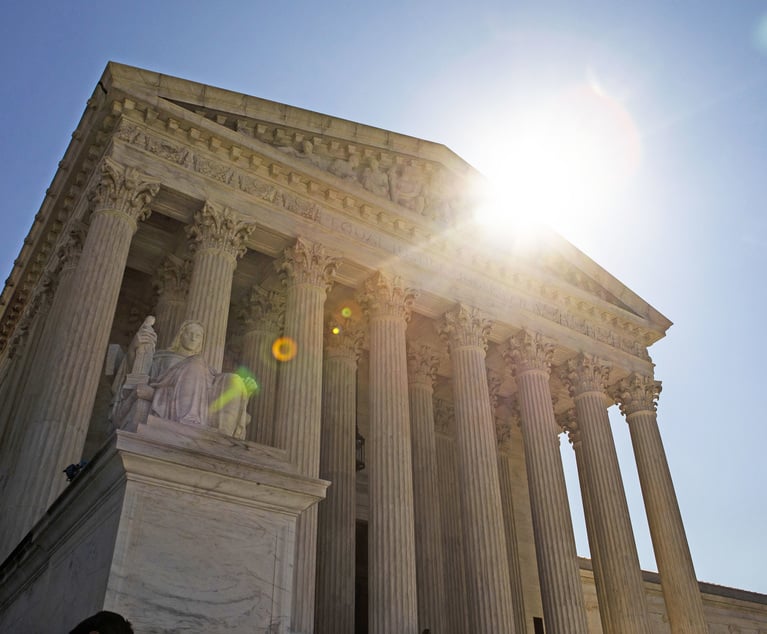Features

Breaking Down DOJ’s New FCPA Enforcement Guidelines
On June 9, the DOJ released its Guidelines for Investigations and Enforcement of the Foreign Corrupt Practices Act, ending a months-long pause on FCPA enforcement and outlining DOJ’s go-forward criteria for evaluating whether to bring FCPA actions. Here’s a breakdown of the key themes in the guidelines.
Features

High Court Expands the Reach of the Wire Fraud Statute (Part III)
On May 22, 2025, the Supreme Court endorsed the “fraudulent inducement” theory of wire fraud in Kousisis v. United States, departing from its recent trend of narrowing the scope of broadly worded criminal statutes, including the wire fraud statute. This decision appears to allow the government to obtain a conviction even where the defendant did not intend to cause economic harm to their counterparty, so long as the defendant made material false statements in order to obtain property from another.
Features

Theranos Whistleblower Tyler Shultz: A Tale of Courage and Ethical Duty
In the annals of corporate fraud, few stories resonate as powerfully as that of Theranos, the Silicon Valley biotech startup that promised to revolutionize blood testing but collapsed under the weight of its own deception. At the heart of this saga is Tyler Shultz, a young whistleblower. This article recounts Tyler’s extraordinary journey and invites legal professionals to explore its lessons through our CLE program, which bridges his real-world experience with the ethical obligations enshrined in the Rules of Professional Conduct.
Features

Reading the Tea Leaves: Jury Awards $2+ Million for Bigelow’s “Manufactured in the USA 100%” Label
On April 8, 2025, a California jury found that R.C. Bigelow, Inc., the well-known manufacturer of Bigelow teas, intentionally or recklessly misled consumers by claiming that some of its teabags were “Manufactured in the USA.” The price for this mislabeling was steep, with the jury awarding the class action plaintiffs $2.36 million.
Features

Supreme Court: Statements Made to FDIC Need to Be “False,” Not Just “Misleading”
This article describes the prosecution in Thompson, then turns to the Supreme Court’s rejection of the government’s contention that 18 U.S.C. §1014 criminalizes misleading as well as false statements.
Features

DOJ Shifts White-Collar Crime Enforcement Strategies
The DOJ announced on May 12, 2025, a strategy shift in its approach to white collar enforcement, identifying specific high-impact areas of focus; an expansion of whistleblower and self-disclosure incentives; and a narrowed use of corporate monitorships. These strategic shifts present significant opportunities for companies and individuals currently facing government investigations, particularly where those investigations no longer align with DOJ priorities.
Features

Is Cryptocurrency Enforcement Dead? SEC Dismisses Another Crypto Action
The SEC’s move is the agency’s latest withdrawal from a series of over a dozen investigations and legal actions against other entities in the digital asset space, including exchanges like Coinbase and Kraken.
Features

ICE at the Workplace: A Toolkit for Employers
Imagine you are the general counsel of a company that maintains warehouses across the country with thousands of employees and you have heard that the government is visiting warehouses like your company’s to check the employment authorization of employees and potentially seeking to detain anyone the government believes may be undocumented. It is critical that you remain informed and ready to face increased scrutiny of your employees’ immigration status at your places of business.
Features

Enforcement Priorities May Change, But Deciding Whether to Self-Report Is Always a Balancing Act
While the enforcement landscape continues to evolve, companies should continue to maintain effective compliance programs and fully remediate any issues that arise.
Features

Drawing the Line: What Constitutes Harboring Under the Alien Harboring Statute?
The harboring provision of the Immigration and Nationality Act criminalizes the act of “concealing, harboring, or shielding from detection” any alien who is unlawfully present in the United States. This article examines a few federal cases to illustrate the doctrinal contours of harboring — drawing a clear distinction between active concealment and passive accommodation.
Need Help?
- Prefer an IP authenticated environment? Request a transition or call 800-756-8993.
- Need other assistance? email Customer Service or call 1-877-256-2472.
MOST POPULAR STORIES
- Use of Deferred Prosecution Agreements In White Collar InvestigationsThis article discusses the practical and policy reasons for the use of DPAs and NPAs in white-collar criminal investigations, and considers the NDAA's new reporting provision and its relationship with other efforts to enhance transparency in DOJ decision-making.Read More ›
- The DOJ's Corporate Enforcement Policy: One Year LaterThe DOJ's Criminal Division issued three declinations since the issuance of the revised CEP a year ago. Review of these cases gives insight into DOJ's implementation of the new policy in practice.Read More ›
- The DOJ's New Parameters for Evaluating Corporate Compliance ProgramsThe parameters set forth in the DOJ's memorandum have implications not only for the government's evaluation of compliance programs in the context of criminal charging decisions, but also for how defense counsel structure their conference-room advocacy seeking declinations or lesser sanctions in both criminal and civil investigations.Read More ›
- A Lawyer's System for Active ReadingActive reading comprises many daily tasks lawyers engage in, including highlighting, annotating, note taking, comparing and searching texts. It demands more than flipping or turning pages.Read More ›
- Practice Tip: The Earning Capacity of Business OwnersThe owner of a business can claim as lost earning capacity in a personal-injury action only the working time lost due to injuries and harm to future earning capacity, not the business' alleged profits in perpetuity.Read More ›
